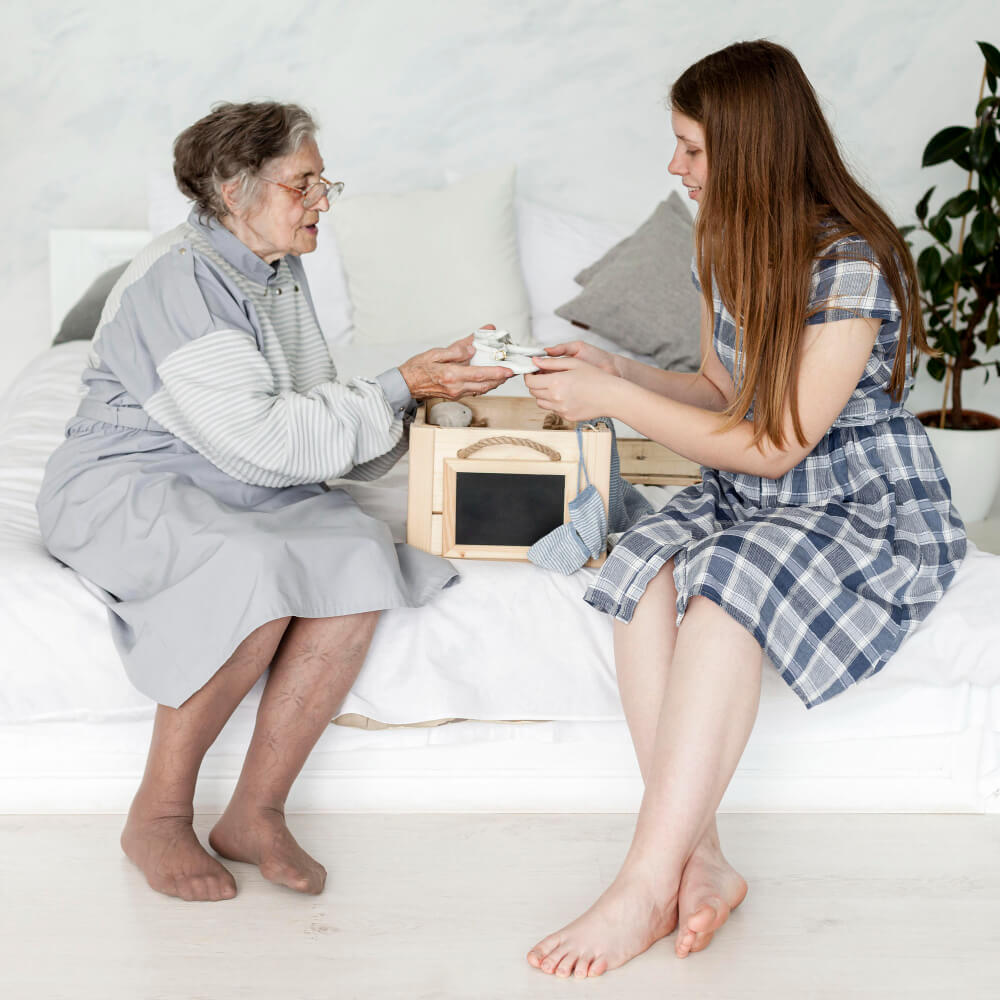When we think about care for individuals with disabilities or those requiring in-home assistance, we often focus on physical health. While providing physical care is essential, it’s equally important to address the mental and emotional health of those in need of care. Mental health is deeply connected to overall well-being and plays a crucial role in the healing and quality of life for people who are disabled or receiving in-home care. At Aegis Royal Care, we understand that a holistic approach to care — one that includes both physical and emotional support — is vital for enhancing the lives of those we serve.
Why Mental Health Matters in In-Home Care
For many individuals requiring in-home care, the challenges of living with a disability or health condition can lead to feelings of isolation, frustration, and sadness. This can negatively affect their mental health and overall quality of life. Depression, anxiety, and other mental health conditions are not uncommon in individuals who experience significant changes in their physical abilities, independence, or daily routine.
Mental health problems, when left unaddressed, can impede the recovery process, worsen physical symptoms, and make managing chronic conditions more difficult. This makes it crucial to offer not only physical care but also emotional support for individuals facing health challenges or disabilities.
The Role of Family and Friends in Supporting Mental Health
As family members and friends, you play a pivotal role in the emotional well-being of your loved ones who require in-home care. Here are a few ways you can support their mental health and make a positive impact:
1. Encourage Open Communication
- Simply talking about how your loved one feels can provide immense comfort. Encourage open, non-judgmental communication about emotions, fears, and challenges. Listening attentively and offering reassurance shows that you care and that they are not alone in their struggles.
2. Offer Emotional Support and Companionship
- Loneliness can be a significant contributor to mental health issues for those receiving in-home care. Spend quality time with your loved one by engaging in activities they enjoy. Whether it’s watching a movie together, chatting over coffee, or participating in a hobby, companionship fosters emotional well-being.
3. Promote Positive Social Interactions
- In many cases, isolation exacerbates mental health concerns. Encourage and facilitate regular social interactions, whether in person or through virtual platforms, with friends, family, or community groups. Positive social engagement helps maintain a sense of belonging and purpose.
4. Incorporate Relaxation and Mindfulness Practices
- Activities like deep breathing, meditation, and mindfulness exercises can reduce stress and help improve mental clarity. Offer to guide your loved one through simple relaxation exercises or encourage them to take time for self-care.
5. Help Set Realistic Goals and Celebrate Achievements
- Individuals receiving in-home care often experience a loss of independence, which can take a toll on their self-esteem and confidence. By helping set achievable goals and celebrating progress, you can foster a sense of accomplishment and improve their mental outlook.
6. Encourage Professional Support When Needed
- If you notice signs of depression, anxiety, or other mental health concerns, it’s important to encourage your loved one to seek professional help. Many in-home care services, like those provided by Aegis Royal Care, can offer access to mental health professionals who specialize in caregiving support.
7. Maintain a Consistent Routine
- Establishing a daily routine can offer a sense of stability and security, which is crucial for individuals facing health challenges. Having a predictable schedule for meals, activities, and care helps reduce feelings of anxiety and gives your loved one something to look forward to each day.
8. Make Their Environment Comfortable
- A cozy, welcoming, and familiar environment can do wonders for mental health. Ensure that their living space is safe, clutter-free, and personalized to their tastes. Small touches, like favorite artwork or comforting scents, can bring a sense of peace.
Conclusion: A Holistic Approach to Care
At Aegis Royal Care, we emphasize the importance of addressing both the physical and emotional needs of those in our care. By considering mental health as a vital part of the care process, and by supporting our loved ones with empathy, patience, and understanding, we can help foster a healthier, more fulfilling life for those who need it most.
Remember, your support plays a crucial role in enhancing the quality of life for individuals receiving in-home care. By making mental health a priority, you’re not just helping them manage their physical needs, but also ensuring they maintain their dignity, independence, and well-being.

